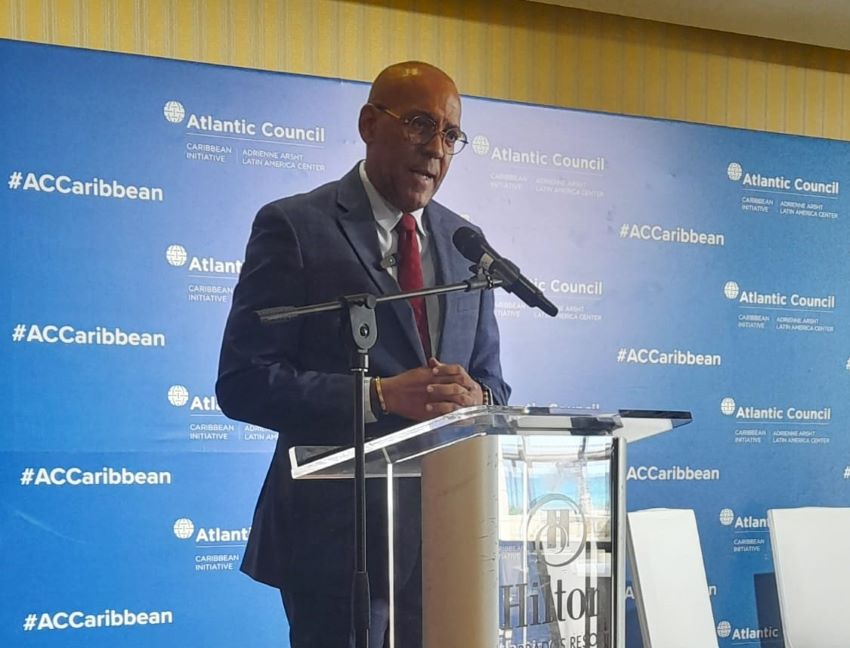
Strengthening US-Caribbean partnerships on climate adaptation, resilience and clean energy, was the focus of the ‘Caribbean Climate Resilience: Navigating Global Support for Local Action’ forum, held recently at Hilton Barbados, Needhams Point, St. Michael.
Minister of Foreign Affairs and Foreign Trade, Kerrie Symmonds, stressed that the Caribbean and the US “sit at a point of intersection” with regard to the challenges of climate financing and debt financing, which, “although two entirely different issues”, must be resolved together and at the same time.
Highlighting the drain on small economies and societies, with regards to financing climate resilience, Minister Symmonds spoke on the importance of sharing realities and inviting the world to lend a voice to address the disproportionate burden of the climate crisis. “I think of the coral reef and beach erosion, and the need to counteract the beach erosion, and therefore build the revetments and the board walks and so on.
“These are large and lumpy investments that even the private entities in the region do not want to finance but must be financed. Therefore, for us to be able to get to the point where we can do these things, we have to be able to build partnerships”, underlined the Minister.
A climate resilience debt clause, which would allow for a debt repayment pause during climate disasters, giving Governments time to recover, was also addressed by Minister Symmonds. He said: “We are basically sitting down as equals at the table, and saying to world leaders of leading global powers that there are certain inadequacies in the global structure of financing, in the global approach to trade, and that these things have to be fixed, otherwise you are going to leave people facing existential crisis”.
The impact of water scarcity, due to drought, on climate resilience was also emphasised by Minister Symmonds. Pointing out that water mains, laid by the British in the 18th and 19th centuries were disintegrating, he said: “And, 3000 kilometers of mains, across this island’s network, being replaced at what we are told is likely to be a cost of about $2 million per kilometer, takes you into the realm of $6 billion, and obviously the question is, where is this money to be found in an $8 billion economy?
“If you’re going to ask me to interrogate the question of resilience, then the cost analysis has to be done. And, we are losing roughly 40 per cent of our water, having been generated before it reaches the homes that it is being sent to, or the places of business or the places of recreation, etc. So, this lends a sense of urgency to fixing that $6 billion challenge that we are confronted with”.
The Foreign Affairs and Foreign Trade Minister noted that this information helps one to understand that this is the grim reality confronting not only Barbados but, by extension, the rest of the Eastern Caribbean.
Moderator, Wazim Mowla, from host organisation of the event, Atlantic Council, lauded Minister Symmonds as possessing an “eclectic sort of understanding of what needs to happen when it comes to change and development of the region”.
